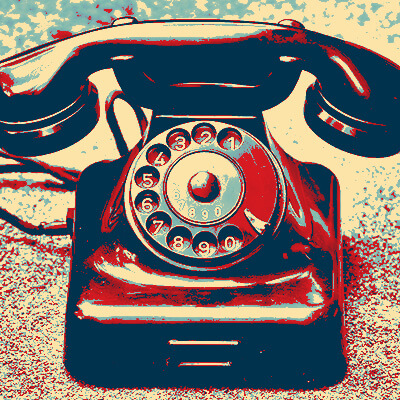Spectacular people. Knowledgeable, professional, customer focused and easy to work with. I have used their services a couple of times (because I am over 40) and they are great to work with.
Need Help? Call Us.
877.201.3586
Why Transition To Digital Banking?

As we, at GroovyTek, often discuss with our clients, we find ourselves living in the midst of the digital revolution. The traditional ways in which we acquire information, consume our entertainment, stay connected with friends and loved ones, take and save pictures, use coupons when shopping and more is changing and becoming more and more based on applications designed for our personal technology - smartphones, tablets, and computers.
For many of us, myself included, one of the last areas of our lives that we are comfortable converting to a more digitized approach has been banking. I personally always held onto traditional banking because I had an affinity for the tangibility of handwriting my checks. I always felt more in control of my finances when I was writing the checks, reviewing the paper bills, and walking the bills out to the mailbox; it just felt right to me.
That being said, for years, banks have been hoping and working to convince their users to convert their transactions to digital means. In fact, for most millennials and younger folks, there is no difference between online or digital banking and traditional banking. To them, it is all just banking.
Along with so many other consumer services, transitioning to online banking became more necessary for folks due to the pandemic. Now, most banks hope to capitalize on this "forced" conversion trend and maintain the momentum related to converting more and more of their clients to online or digital solutions.
So, is it time to make the change? Is it time to move away from paper checks and convert to on-line bill pay? Is it time to set up online banking accounts to enable 24/7 access to account balances, statements, and more? Obviously, this is a personal decision, and individual factors come into play, but in general, the time is right to make a move.
Why? Well, the banks are investing in their digital banking platforms. The services will continue to evolve and improve; most of the banking innovations moving forward will be related to their digital capabilities. Further, just like how cell phone companies have transitioned away from flip phones, moving to digital accounts and bill pay is inevitable. Banks will most likely begin to cut down on in-person staff and hours, so you might as well start the transition now, on your terms. Just imagine the time you might save by not having to visit a brick-and-mortar bank for basic banking services every again, no drive-time, no wait-time; you can now bank from home.
The next concern that leads many to avoid making the transition has been security-related. As we all know, banking is a very regulated business. At this point in 2021, it is safe to say that online banking has become extremely secure; over the past decade or more, there has been enough runway in this area that the banks have worked to develop the safest environments possible for online transactions.
Yes, you need to be aware of how you are operating online as always, but once you are logged in securely to your banking accounts, you can act with confidence that you are operating securely. Again, keep your guard up with the usual scams and hacking suspects such as phishing emails and bogus offers from a Prince in Africa. Still, if you securely logged in and operating within the bank's online environment, you should be confident and comfortable knowing the stakes are super high for the banks to do everything in their power to have a safe and productive online service.
If you are interested in learning more about making the transition, chat with a GroovyTek trainer who can help answer any questions and even help you put together a roadmap to move to digital banking.
Call us today at 877.201.3586
to get patient, respectful technology training for your parents.

Client Reviews
We have had several help sessions with a GroovyTek trainer. WE could not be more pleased. My trainer takes all our questions and while answering types up his answers so even after he leaves, we can refer to his notes. I would recommend GroovyTek to any of my friends or family without hesitation. BTW, ALL the employees at this firm are extrememly knowledgeable and friendly.
Tom D
I had a session with GroovyTek over the phone today. It was extremely helpful to me because I was able to see everything that he was doing on my computer as he was talking. I was then able to follow his actions to do what he was doing as well. What a way to go!
Carole M
It is comforting to know if you have technical problems there is a Hands On source to get help. These trainers listen to your problems, find solutions and work with you until you understand the solution, their patience is outstanding. This is a great way to not only solve problems but to learn about the ever-changing world of technology; there are class presentations, small group gatherings or one-on-one in your home with kind, friendly, people.
Ingrid S
Dear GroovyTek team, I thank you from the bottom of my heart for this very supportive and beneficial service you provide! I am so grateful!
Loretta J
The trainers are so friendly, and helpful. They certainly have lots of patience and knowledge. They make you feel so comfortable asking questions you would not dare ask your family to show you again how to do. They are always welcome in my home, sometimes I hate to see them go!
Debera F
I think your service is great! I have used it, and I booked 2 sessions for my 83-year old husband who bought himself a new Ipad, but didn't know how to use it. He's been ill, so it was a great help that you came to the house. Thanks for the service.
Susan S
Very impressed with my trainer’s ability to provide thorough explanations and demonstrations. I have confidence now in knowing how to manage my photos, videos, and documents. I received my money’s worth of valuable instruction.
Cheryl M
GroovyTek did a great job! My trainer was on time, professional and she solved my slow computer. Great job, GroovyTek! I will use your services again.
Marcia F
My tech is patiently bringing me (at age 79) into the computer age. I am so glad that I found him through GroovyTek. What a wonderful gift!
Judy K
My tech from GoovyTek has been terrific. He is patient, knowledgeable, and explains things really well. I enjoyed learning new tools and features on my smart phone and computer. They have made doing things a lot easier and more enjoyable.
Jennifer H
Outstanding trainers with expertise and a lot of patience at a fair price. I have used them for two years and they have given me a much better understanding of the in's and outs of how to use many aspects of my computer. It is a pleasure to have them come to my home and work on my own computer problems.
Jerry P
Excellent help from our GroovyTek trainer. He spent an hour explaining issues that I was confronted with, on my computer, and corrected all my issues and problems. He was concise, knowledgeable and forthright and I will call on him and GroovyTek again whenever I need help and support. I highly recommend GroovyTek services!
Laura M
I have always had the best computers that Apple offered, but the problem was that I never knew how to use them. Thanks to my GroovyTek trainer, my tech skills have increased exponentially and I am feeling more competent and confident with each lesson.
John B
Today was my first experience with GroovyTek and it was extraordinary. I learned so much over the course of the hour AND as importantly fixed the problem I was having. The trainer was intelligent and friendly. All support was given in a very collaborative way. I am looking forward to this partnership.








